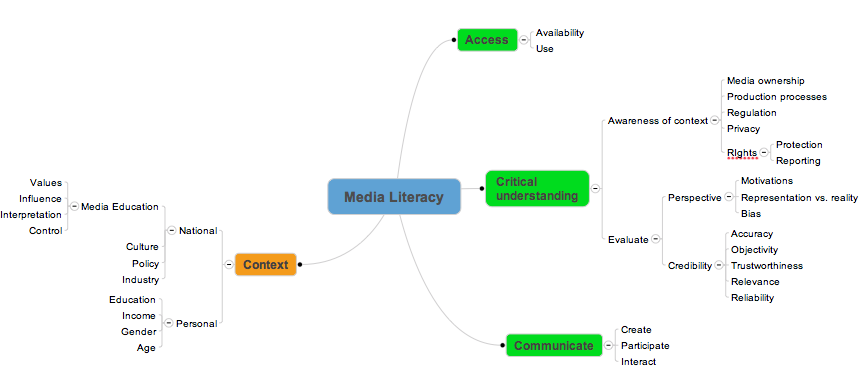My study of university students’ digital literacy practices “Knowledge and processes that predict proficiency in digital literacy,” written with Richard Mayer and Miriam Metzger, has been published today in Reading and Writing. A summary of my dissertation research, this article in many ways shows the challenging messiness of measuring digital literacy. Motivated by a need to identify and understand the skills university students brought to online research assignments, I asked students to complete an online research and writing assignment in which they produced an essay. In addition to their written output, all of their computer actions were recorded and they completed an attitudinal survey before and after the writing task.
When I started the research in 2006 ‘digital literacy’ as a term had not yet been formalized. And while debate continues as to what constitutes ‘literacy’ generally, and digital literacy in particular, in these early stages, researchers were still determining the basic components of this emerging practice. So, in some ways, this research reflects a history, or a least my history, of digital literacy research. It is also a strong reminder of the tools we as researchers have to understand emerging phenomena, our skill in distilling practices as much as we can to understand them while also acknowledging the varied contexts in which they occur. I’m happy that the basics–search, evaluate, integrate, communicate–have withstood further testing. It’s also been a pleasure to participate in this area as it evolves. Initially, I was cobbling together literature reviews from several disciplines and it seems that it is coalescing in both communication and education, though I wish there were more collaboration between the two fields.
The most promising direction of digital literacy research, from a measurement perspective, is the pairing of outcomes with practice measures. In our research, we found that the integration and communication variables were too closely linked, however this finding reflects how essential integration (the bringing together of materials) is to strong outputs (an argument that blends various source materials into a coherent whole). Our research additionally found that experience matters, that while technical expertise can augment, it cannot substitute for prior knowledge of the material or experience with conducting academic research.
I follow and am inspired by the work of Sonia Livingstone, Renee Hobbs, Divina Frau Meigs. Alison Head, Julie Coiro, Miriam Metzger, Charles Bazerman, and Alan Liu, among others. In my policy work for the European Commission, we applied their research to a construction of variables for measuring media literacy in a national context. Here is a diagram emerging from this work that addresses contexts of practices:

